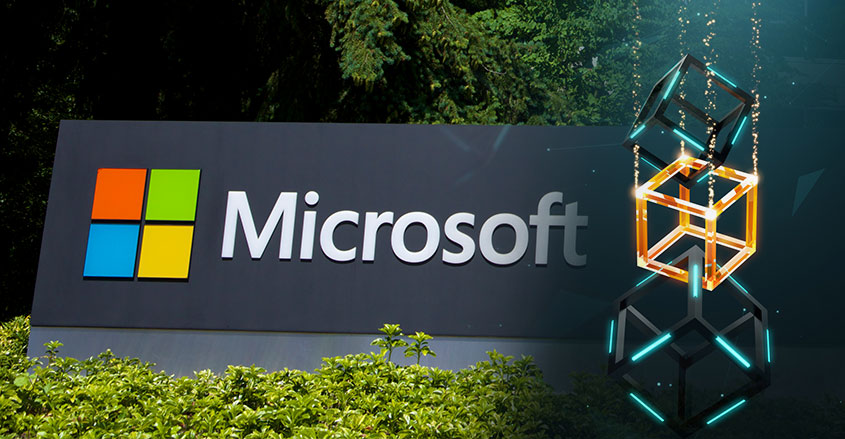Microsoft engineers announced in recent blog post that the company is trialing decentralized blockchain IDs.
The implication is that your digital identity, now secured by passwords and two-factor authentication, could be secured instead by the technology behind cryptocurrencies such as Bitcoin.
If it works and scales up, users on a network would not have to worry about security breaches of big retailers and credit card companies. Companies would not longer need to maintain identity logs with personal data, which can be subject to hacks.
Microsoft would be looking to examine the possibilities of integrating a decentralized identity, stored on a public blockchain, within their already existing Microsoft authenticator app.
Alex Simons, the director of program management for Microsoft’s Identity Division authored the post, along with Ankur Patel, the principal program manager of the division.
“As many of you experience every day, the world is undergoing a global digital transformation where digital and physical reality are blurring into a single integrated modern way of living,” writes Patel.
“This new world needs a new model for digital identity, one that enhances individual privacy and security across the physical and digital world.”
This decentralized ID, stored on a public blockchain, will be able to interact with Microsoft’s already existing authenticator app.
“Today, the Microsoft Authenticator app is already used by millions of people to prove their identity every day. As a next step we will experiment with Decentralized Identities by adding support for them into to Microsoft Authenticator,” Patel explains.
“With consent, Microsoft Authenticator will be able to act as your User Agent to manage identity data and cryptographic keys.”
Scalability concern
In this design, only the ID is rooted on chain, Patel continued.
“Identity data is stored in an off-chain ID Hub (that Microsoft can’t see) encrypted using these cryptographic keys,” he wrote.
“Once we have added this capability, apps and services will be able to interact with user’s data using a common messaging conduit by requesting granular consent. Initially we will support a select group of DID implementations across blockchains and we will likely add more in the future.”
While most of the news to come out of this development has been rosy, that is not to say that it has been all good news.
Microsoft has admitted that their main concern going forward will be scalability, which is now a discussion coming to the forefront within many of the blockchain communities.
Microsoft’s goal is to allow millions of users to be able to simultaneously access the blockchain for their decentralized ID authentication, something not currently possible.
To overcome this challenge of scalability, Microsoft has talked about adding extra layers.
Patel writes: “To overcome these technical barriers, we are collaborating on decentralized Layer 2 protocols that run atop these public blockchains to achieve global scale, while preserving the attributes of a world class DID system.”


